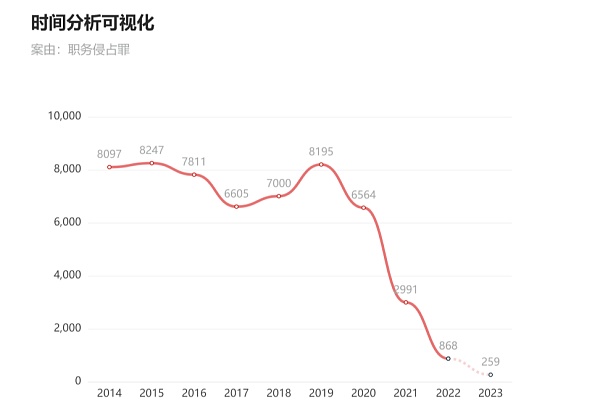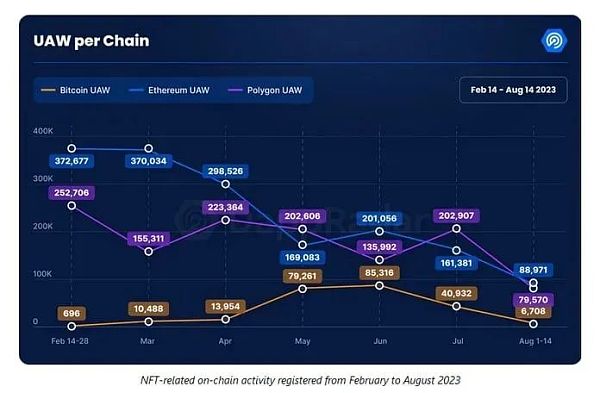Babbitt column | Is the blockchain field more suitable for small companies to start a business, or is the big company self-improvement?
In the article "The Impact of Non-Standardization of Products and Services on Blockchain Applications", which I previously published, we learned about the way blockchains create trust between decentralized entities of different types of goods and services. For standard products, the blockchain simply tells people whether the other party meets the relevant conditions. For non-standard products, the blockchain needs to enhance the authenticity of the evaluation to present the original face of the relevant stakeholders as much as possible.
In this, we will find a very interesting thing: that is, for non-standard products, the blockchain technology is effective in building the original intermediary platform with traffic, gathering more comments and click-through rate. Only in this way, it is meaningful to talk about the true and false of the comments, and such intermediary platforms are often affiliated with large companies. As a result, it involves a question that needs to be considered: is that blockchain technology is more suitable for large enterprises or small enterprises?
To answer this question, we need to conduct an extended analysis of the “standard” and “non-standard” industries in the previous article.
First of all, look at the standard service industry. In this field, the service provided by the information intermediary is more homogenous. Just like the judgment question and the multiple choice question, the service provided by the original information intermediary is highly substitutable. First, if there is a flaw in the centralized intermediary, the quality of its service will easily be overtaken by other competitors. However, compared with the centralized intermediary, the competitor is often not in the service quality, but in the credibility. On the other hand, the user is not worried about what you are doing (after all, this industry is doing the same), but worried about whether you have done it.
- Tencent's cat: How did the blockchain cats come together to catch the demon?
- Blockchain and quantum computer space
- Blockchain 3.0 Anniversary: Iterating for Landing Applications, Blockchain 3.0 Technology Progress
Under such circumstances, it is necessary to use the extremely difficult tampering characteristics of blockchain technology to sink the credibility that originally concentrated on centralized mediation to small and medium-sized credit intermediaries that use blockchain technology. In this way, these stakeholders can gain the trust of users. That is to say, in this subdivision, the role of blockchain technology is actually to make up for the shortest piece of wood for small and medium-sized credit intermediaries—that is, the industry reputation accumulated by time. The short board of large intermediaries is not in the prestige, so the blockchain can not directly promote it.
For example: Bitcoin was applied early in the blockchain. In the Bitcoin network, the blockchain acts as a trust intermediary for all parties to the transfer. Its role is to record changes in each account. The degree of homogenization of this work is very high, assuming that A passes through well-known banks, ordinary banks, or districts. The blockchain network transfers 100 yuan to B in three ways. Under the premise of reliable bookkeeping, B can basically receive the money. In addition to the fee and transfer speed, the service quality between agencies is generally speaking. Similar.
Therefore, when some people can't complete the remittance in time through the original international transfer network SWIFT (SWIFT is known for its slow efficiency), it will choose to switch to a faster blockchain network. In fact, many blocks Like the shadow banking, the chain network does not have high industry brand awareness, but why can it get the favor and trust of many transferers? One reason is that account change information on the blockchain network is extremely difficult to tamper with and highly credible.
In non-standard service industries, the services provided by information agencies are relatively less homogeneous, just like the quiz questions. Generally speaking, the platform with the larger traffic has more perspectives on the problem, so it presents The answer is more three-dimensional. That is to say, the services provided by these information brokers have the core competitiveness supported by the traffic, and the substitutability is weak. Therefore, the blockchain technology on these sub-segments is more likely to exist as a tool for self-improvement and credibility, such as eliminating comments and comments.
As for small companies, it is almost impossible to impact the original interest pattern only through new products in the blockchain, because for large companies, they want to build a credible blockchain explosion product, only need It is ok to implant blockchain technology in your own original explosion products. For small companies with blockchain technology, if you want to achieve the same goal, you need to find ways to make your own blockchain products. Explosion. Today, at the PAAS level, the public chain private technology is highly over-represented, and the flow and attention resources are becoming scarcer. Today, the challenges faced by small companies are obviously greater than those of large companies.
Figure: In the non-standard service area, big companies and small companies have different paths and difficulties to create traffic decentralized applications.

In this regard, due to the slow progress in the application of blockchain, there has not been a precedent. However, from the current development trend of the industry, it is still possible to see the clues. For example, when the security incidents of online car rentals occurred frequently in 2018 and the reputation of traditional intermediary platforms was seriously impaired, a series of decentralized applications based on blockchains appeared around the sharing economy including transportation and accommodation. The goal is to create a blockchain sharing economic platform that “makes the supply side more reliable”. However, from the follow-up promotion situation, many projects have experienced unsatisfactory progress and are generally considered to be empty shells. air. One of the important reasons for this is that there is no convergence of traffic on these platforms, so that the blockchain as an evaluator has no identification object, and naturally it cannot reflect the advantages of the product.
By summarizing the above, it is basically concluded that in different types of goods and services, the way companies cut into blockchains is different. In the standard service industry, blockchain technology is more suitable for use by small companies as the best tool to make up for its credibility shortcomings. Because large companies have accumulated more industry prestige, blockchain technology The improvement effect is not obvious; in the non-standard service industry, blockchain technology is more suitable for use by large companies to improve the credibility of their own traffic and comments. Because of the lack of traffic as a “trusted raw material”, small companies The use of blockchain technology is of little significance.

It should be pointed out that the premise of the above-mentioned blockchain technology solution is that if the trust foundation of the existing centralized organization in the customer group is loose, if the ordinary user expresses a high degree of trust to the existing information intermediary. Then, whether it is a small company borrowing blockchain concept entrepreneurship, or a large company to self-improve through the blockchain, the necessity is relatively limited. From a realistic point of view, this situation is not uncommon. After all, for the user, the trust-centric organization sometimes only needs the inspirational story of the founder and the true and false, but trusts the decentralized blockchain but needs to engage Understand the complex technical principles behind.
Therefore, in the search for the scene of blockchain technology, it is necessary to pay attention to avoiding the areas where the existing giants have high prestige, and then looking for opportunities in some power vacuum areas, because the so-called "blockchain creates trust". In the final analysis, it is to convey to the user the message that when there is no trust intermediary in a certain field to believe, you can choose to rely on blockchain technology that is managed by multiple stakeholders.
We will continue to update Blocking; if you have any questions or suggestions, please contact us!
Was this article helpful?
93 out of 132 found this helpful
Related articles
- Twitter Featured: The UK's largest travel company accepts bitcoin payments; SBI will be removed from BCH
- Blockchain combined with identity authentication, not getting lost in the digital world
- The exchange has a large blockchain governance power – the center of power in a decentralized world
- Twitter Featured: Coin Security decided to take down BSV; ConsenSys seeks $200 million financing
- Community Governance, PoW Workload Proof and Commercialization
- Blockchain reshapes digital identities, which applications are worth looking forward to?
- Babbitt column | After the “no mining”, has the trend of the development of the blockchain industry changed?






